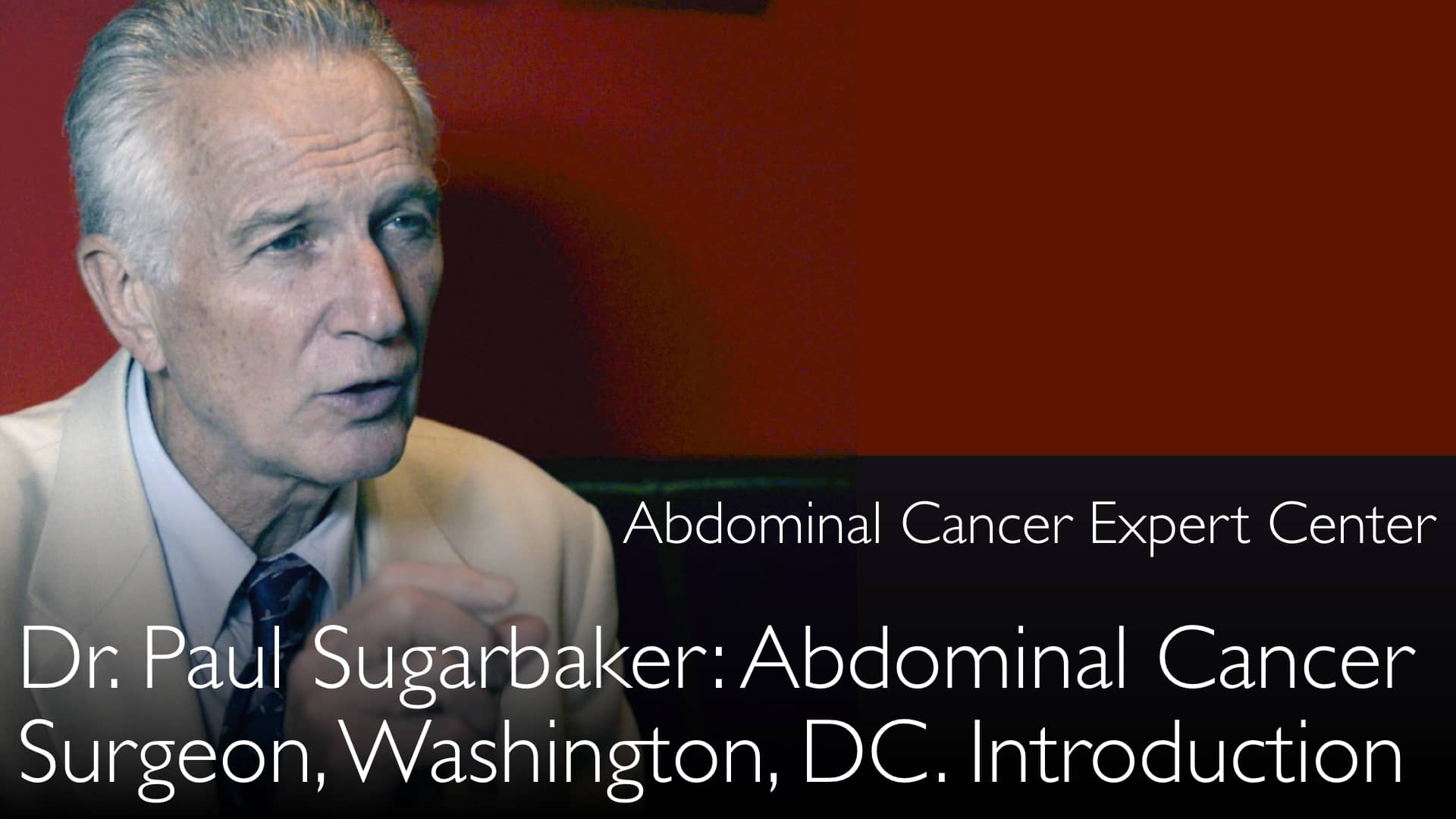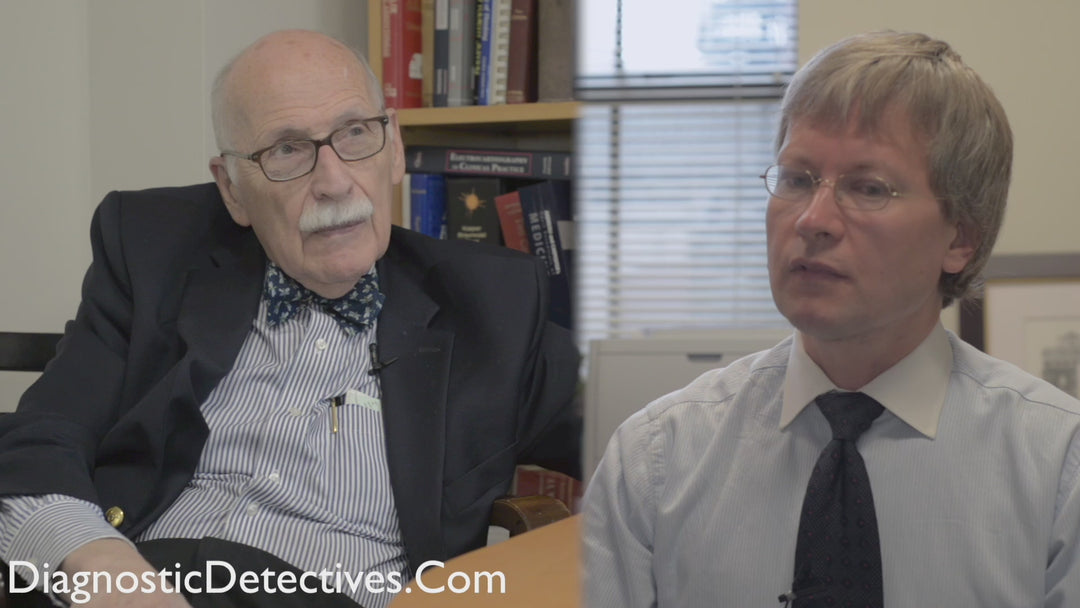Dr. Paul Sugarbaker, a leading expert in cytoreductive surgery and HIPEC, explains the rigorous training required to master the Sugarbaker procedure. He emphasizes that a surgeon must observe and participate in over 100 cases before performing this complex operation independently. Dr. Sugarbaker underscores the critical need for an extended mentorship period at a high-volume center. He also mentions several internationally renowned hospitals specializing in peritoneal cancer treatment. The interview highlights that the surgeon’s experience is a decisive prognostic factor for patient survival.
Mestring af cytoreduktiv kirurgi og HIPEC: Kirurgens læringskurve
Spring til afsnit
- Sugarbaker-procedurens kompleksitet
- Krav til læringskurven
- Betydningen af mentorship
- Globale center of excellence for HIPEC
- Kirurgens indflydelse på overlevelse
- Fuld transskription
Sugarbaker-procedurens kompleksitet
Sugarbaker-proceduren for peritonealcancer er en langvarig og teknisk krævende operation. Dr. Paul Sugarbaker, MD, opfinderen af cytoreduktiv kirurgi og HIPEC (hyperterm intraperitoneal kemoterapi), forklarer, at kompleksiteten omfatter hele det kirurgiske team. Proceduren kombinerer cytoreduktiv kirurgi for at fjerne alle synlige tumorer med hyperterm intraperitoneal kemoterapi (HIPEC) for at behandle mikroskopisk sygdom.
Den anvendes primært til peritoneale metastaser fra tyktarmskræft, æggestokkræft og mavekræft. Den komplekse natur af indgrebet kræver en højt specialiseret kompetence for at opnå optimale patientresultater.
Krav til læringskurven
Mestring af cytoreduktiv kirurgi og HIPEC kræver observation og deltagelse i mindst 100 tilfælde. Dr. Paul Sugarbaker, MD, henviser til studier, der definerer denne omfattende læringskurve for sikker og effektiv behandling. Kirurgen i træning behøver ikke selv at udføre alle dele af proceduren i starten.
Aktiv deltagelse i over hundrede tilfælde er imidlertid afgørende, før man opererer selvstændigt. Denne omfattende praktiske erfaring er nødvendig for at udvikle den faglige dygtighed, der kræves for at håndtere kompleksiteten ved peritoneale overflademaligniteter.
Betydningen af mentorship
Et langsigtet mentorforhold er afgørende for effektivt at lære Sugarbaker-proceduren. Dr. Paul Sugarbaker, MD, understreger, at et kortvarigt besøg på et center ikke er tilstrækkeligt til at opnå ekspertise. Kirurger bør finde en erfaren mentor og samarbejde med dem over flere år.
Dette udvidede samarbejde giver kirurgen mulighed for at udvikle avancerede færdigheder i fjernelse af metastatisk kræft fra peritoneum. Dr. Anton Titov, MD, faciliterer diskussionen og belyser rejsen fra nybegynder til ekspert i peritonealonkologi.
Globale center of excellence for HIPEC
Flere højvolumenscentre verden over har årtiers erfaring med behandling af tusindvis af peritonealcancertilfælde. Dr. Paul Sugarbaker, MD, nævner specifikke førende institutioner i Europa. I England er de største centre i Basingstoke og på The Christie Hospital i Manchester.
I Tyskland er førende centre placeret i Regensburg og Berlin. Holland og Sverige har hver især fem veletablerede programmer. Frankrig har også fremragende centre for træning og behandling, især i Paris, Lyon og Marseille.
Kirurgens indflydelse på overlevelse
Valget af kirurg og behandlingscenter påvirker direkte overlevelsesudfaldene for patienter med peritonealcancer. Dr. Paul Sugarbaker, MD, bekræfter, at kirurgen er en væsentlig prognostisk faktor i peritonealomkologi. Mens Peritoneal Cancer Index (PCI) er et afgørende mål for sygdomsomfang, er behandlingsstedet lige så vigtigt.
Dr. Anton Titov, MD, diskuterer dette kritiske punkt og understreger, hvorfor patienter bør søge behandling på højvolumenserfarne centre. Denne ekspertise har stor betydning for succesen af cytoreduktiv kirurgi og HIPEC i at opnå en potentiel helbredelse af metastatisk sygdom.
Fuld transskription
Dr. Anton Titov, MD: Hvordan kan man lære Sugarbaker-proceduren til behandling af peritoneale kræftmetastaser? Nogle gange er der kirurger, der er interesserede i at blive eksperter i cytoreduktiv kirurgi og hyperterm intraperitoneal kemoterapi (HIPEC). Sugarbaker-proceduren er langvarig og teknisk krævende for både kirurgen og det kirurgiske team.
Dr. Anton Titov, MD: Hvad er den bedste metode til at lære Sugarbaker-proceduren til behandling af peritonealcancer?
Dr. Paul Sugarbaker, MD: Måske er den bedste metode at høre om det fra dr. Sugarbaker! Flere medicinske grupper har studeret læringskurven for sikker og effektiv cytoreduktiv kirurgi med hyperterm intraperitoneal kemoterapi (HIPEC). Estimaterne viser, at man skal have observeret over hundrede tilfælde af proceduren for peritonealt metastatisk kræft.
Dr. Paul Sugarbaker, MD: Kirurgen skal deltage i proceduren, men behøver ikke nødvendigvis at udføre al cytoreduktion og alle peritonektomier selv. Kirurgen, der ønsker at lære Sugarbaker-proceduren, skal deltage i over hundrede tilfælde, før han eller hun bør begynde at udføre behandling af peritonealt metastatisk kræft med cytoreduktion og hyperterm intraperitoneal kemoterapi (HIPEC) på egen hånd.
Dr. Paul Sugarbaker, MD: Derfor skal man finde en mentor med betydelig erfaring i peritoneal cytoreduktiv kirurgi og hyperterm intraperitoneal kemoterapi (HIPEC). Man skal arbejde med dem over et par år for at blive dygtig til at fjerne metastatisk kræft fra peritoneum.
Dr. Paul Sugarbaker, MD: Bare at besøge et Peritoneal Surface Oncology Center i en uge eller to gør en ikke til ekspert i behandling af peritonealt metastatisk kræft. Man har virkelig brug for en erfaren mentor, som man kan arbejde med over flere år for at udvikle sine færdigheder i fjernelse af peritonealcancer.
Dr. Anton Titov, MD: Er der center of excellence for behandling af peritonealt metastatisk sygdom, som du vil betragte som høj kvalitet? Kan du nævne nogle centre for behandling af peritonealt metastatisk kræft i Europa, USA eller verden over?
Dr. Paul Sugarbaker, MD: Absolut. Der er centre, der har tyve års erfaring og som har behandlet tusindvis af tilfælde af peritonealt metastatisk kræft. Blot for at nævne nogle centre for behandling af peritonealt metastatisk kræft med cytoreduktiv kirurgi og hyperterm intraperitoneal kemoterapi (HIPEC): i England er de to centre i Basingstoke og på The Christie Hospital i Manchester. I Tyskland er hovedcentrene i Regensburg og på Charité-hospitalet i Berlin. I Holland er der fem centre, der er ret godt geografisk fordelt. I Sverige er der fem centre for behandling af peritonealt metastatisk sygdom. Frankrig har mange erfarne centre for behandling af peritonealt metastatisk kræft.
Dr. Paul Sugarbaker, MD: De to center of excellence, der træner kirurger i cytoreduktiv kirurgi og hyperterm intraperitoneal kemoterapi (HIPEC), er i Paris og Lyon, og også i Marseille.
Dr. Anton Titov, MD: Der er center of excellence for behandling af peritonealt metastatisk kræft uden for dit eget hospital. Derfor kan patienter med metastatisk peritonealcancer fra tyktarmskræft, æggestokkræft eller mavekræft vælge det mest erfarne og højvolumensbehandlingscenter for en succesfuld anvendelse af Sugarbaker-proceduren til behandling af peritoneale kræftmetastaser.
Dr. Paul Sugarbaker, MD: Absolut, der er et bredt spektrum af ekspertise i peritonealcancerbehandling tilgængelig. Overlevelsen af patienter med metastatisk peritonealcancer afhænger selvfølgelig af deres PCI, som måler Peritoneal Cancer Index og omfanget af peritonealcancersygdom. Det er meget vigtigt for prognosen.
Dr. Anton Titov, MD: Men en anden meget vigtig faktor for overlevelse ved metastatisk peritonealcancer fra tyktarmskræft, mavekræft eller æggestokkræft er, hvor behandlingsproceduren udføres.
Dr. Anton Titov, MD: Kirurgen som prognostisk faktor i kræftbehandling?
Dr. Paul Sugarbaker, MD: Absolut. Det er meget reelt i peritonealomkologi, behandlingen af metastatisk kræftspredning i peritoneumrummet ved cytoreduktiv kirurgi og hyperterm intraperitoneal kemoterapi (HIPEC).








